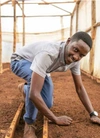Foundation History
Pivotal milestones throughout the Mastercard Foundation’s journey have shaped our pathway toward meaningful and sustainable impact. They also reflect how we approach our work and collaborate with each other, our partners, and the young people we serve. Learn more about the Foundation’s history below.
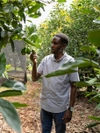
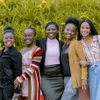
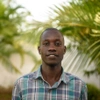
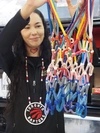
From Origin to Impact: Pivotal Moments

The Foundation celebrates the 10-year anniversary of the Mastercard Foundation Scholars Program
The Foundation celebrates the 10-year anniversary of the Mastercard Foundation Scholars Program and commits to doubling its reach to support 100,000 young people over the next decade.

The Foundation implements Saving Lives and Livelihoods in partnership with the Africa Centres for Disease Control and Prevention
Saving Lives and Livelihoods is one of the largest single partnerships the Foundation has undertaken, as well as the largest public health partnership between a global philanthropic organization and an African institution: a truly capacity- and legacy-building initiative.

The Foundation’s Secondary Education in Africa: Preparing Youth for the Future of Work report is published
Secondary Education in Africa has become the "go-to" resource for secondary education reform in Africa.

The Foundation creates the COVID-19 Recovery and Resilience Program
The Foundation’s rapid response enables quick mobilization, targeting, and scale-up to help economies cope, and even thrive, during the pandemic.

The Young Africa Works strategy is launched
The Young Africa Works strategy is launched to enable 30 million African youth, 70 percent of whom are young women, to access dignified and fulfilling work by 2030.

The Foundation expands and establishes offices in seven African countries
The Foundation expands and establishes offices in seven African countries with the Young Africa Works strategy. The countries are chosen for their enabling environment for growth and commitment to addressing the youth employment challenge.

Digital Access: The Future of Financial Inclusion in Africa is published
Digital Access: The Future of Financial Inclusion in Africa is published, highlighting the opportunities and challenges in furthering financial inclusion on the continent.
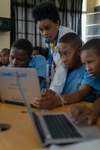
The Foundation’s Leaders in Teaching initiative and its Centre for Innovative Teaching and Learning in ICT are established
The Foundation’s Leaders in Teaching initiative and its Centre for Innovative Teaching and Learning in ICT are established.

The Foundation co-creates the EleV Program
The Foundation hears the Calls to Action from the Truth and Reconciliation Commission of Canada and listens to the voices of young Indigenous people. In September 2017, the EleV Program is co-created in partnership with Indigenous communities to support Indigenous transformation of education and employment systems in service of First Nations, Metis, and Inuit youth.

The Foundation publishes its first commissioned research report — Invisible Lives: Understanding Youth Livelihoods in Ghana and Uganda
The Foundation publishes its first commissioned research report — Invisible Lives: Understanding Youth Livelihoods in Ghana and Uganda — informed by the Youth Livelihoods Diaries research project. The report engages youth directly to understand the strategies they use to address the pressures and opportunities they face when engaged in a mix of informal employment, self-employment, and agriculture-related activities to sustain their livelihoods.

The Mastercard Foundation Fund for Rural Prosperity is launched
The Mastercard Foundation Fund for Rural Prosperity is launched to stimulate the innovation and scaling of products and services by financial service providers.

The inaugural Young Africa Works Summit
The inaugural Young Africa Works Summit highlights effective approaches to youth unemployment and opportunities in the agricultural sector. Over 50 young people are invited to share their perspectives and experiences as panelists and moderators.
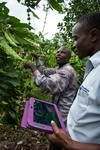
The Foundation publishes Change That Matters: Learning from Our Partnerships
The Foundation publishes Change That Matters: Learning from Our Partnerships, the first learning report issued by the Foundation.

The Foundation evolves its programming from microfinance to financial inclusion
The Foundation evolves its programming from microfinance to financial inclusion. As part of this, the Foundation expands its outreach to rural areas and to the livelihood needs of African youth, with a focus on reaching marginalized, agriculture-dependent communities.

The first Mastercard Foundation Symposium on Financial Inclusion (SoFI) is developed
The first Mastercard Foundation Symposium on Financial Inclusion (SoFI) is developed in partnership with the Boulder Institute for Microfinance. Its goal is to promote client-centred solutions to achieve scale and impact.

The Foundation develops its Economic Opportunities for Youth strategy
The Foundation develops its Economic Opportunities for Youth strategy, which emphasizes the need for holistic programming to remove barriers to youth employment and to focus on skills that employers require in economic growth sectors. The strategy seeks to ensure young people have better opportunities to progress to more stable livelihoods.

The Mastercard Foundation Scholars Program is launched
The Mastercard Foundation Scholars Program is launched to expand access to education and to develop a cohort of 15,000 ethical leaders supporting social transformation and economic growth across the continent. Through the Scholars Program, the Foundation makes a long-term commitment to supporting youth with limited financial means to pursue their aspirations and enrich their communities.

The Foundation Youth Think Tank is established
The Foundation Youth Think Tank is established, giving voice to youth involved in our programs while ensuring youth-led insights consistently inform the Foundation’s decision-making.

The Foundation launches the Learn, Earn and Save Initiative
The Foundation launches the Learn, Earn and Save Initiative, notable for its testing of strategies to integrate education, skills training, entrepreneurship, and financial services for youth.
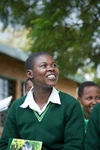
The Foundation redefines its vision
The Foundation redefines its vision from "Making the economy work for everyone" to "Opportunity for all to learn and prosper," bringing together its key focus areas of microfinance and education and learning.

The Foundation initiates its Youth Learning strategy
The Foundation initiates its Youth Learning strategy. Based on a broad review of the global youth education sector, the strategy focuses on access to both formal and informal education in Sub-Saharan Africa. The Foundation partners with the Equity Group Foundation’s Wings to Fly scholarship program, supporting secondary education and leadership development.

The Foundation’s Board makes the strategic decision to focus its resources and work on Sub-Saharan Africa
The Foundation’s Board makes the strategic decision to focus its resources and work on Sub-Saharan Africa to heighten impact and take a long-term view.

The Foundation launches its first microfinance program in Africa
The Foundation launches its first microfinance program in Africa in partnership with BRAC. Through this, the Foundation begins to develop its novel model for partnerships by embracing more collaboration and deeper relationships, resulting in shared learning and broader impact.

Mastercard International creates the Mastercard Foundation
Mastercard International creates the Mastercard Foundation when it becomes a public company, with US$40 million plus 13 million shares (valued at US$500 million), for the purpose of advancing financial inclusion and education to improve the lives of those living in poverty.


